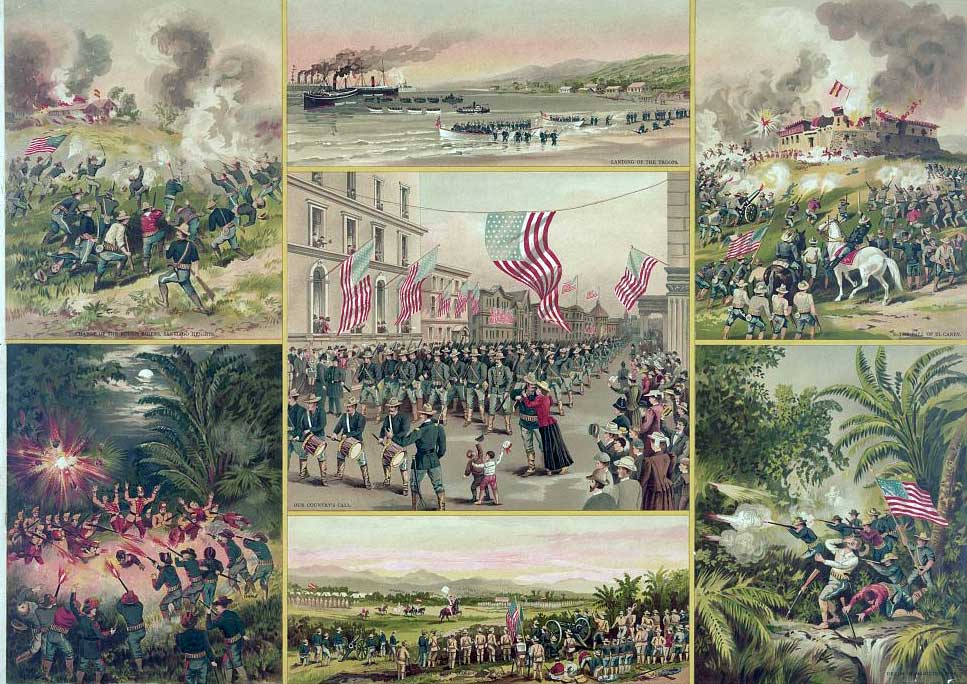Blacks Serve in Spanish-American War

Four Black regiments took part in the US invasion of Cuba during the Spanish-American War. By the end of the war there were 100 Black officers.
In 1866, the Congress passed the Army Organization Act, which allowed for the creation of six all-Black regiments, later consolidated into four: the 9th and 10th Cavalry and the 24th and 25th Infantry. These units were primarily composed of formerly enslaved individuals, freedmen, and African American Civil War veterans. The new units became known as the Buffalo Soldiers
he Buffalo Soldiers were initially tasked with protecting settlers, building infrastructure, and securing the American frontier from Native American tribes during the Indian Wars. They served in the Western United States, including Texas, Arizona, New Mexico, and the Great Plains. Their duties included guarding stagecoaches, wagon trains, and railroad crews, as well as engaging in skirmishes and battles with Native American tribes.
During the Spanish-American War in 1898, part of the Buffalo Soldiers played a key role in the Spanish American war. The units involved were the 9th and 10th Cavalry Regiments and the 24th and 25th Infantry Regiments.
The Black regiments demonstrated exceptional bravery and resilience during the invasion of Cuba, particularly in key battles like the Battle of San Juan Hill. Under the harsh conditions of tropical disease and difficult terrain, they fought alongside Theodore Roosevelt’s Rough Riders and other units, significantly contributing to the U.S. military efforts.
The Battle of San Juan Hill on July 1, 1898, is one of the most famous engagements where these regiments made their mark. Despite facing racial discrimination within the military and from some of their white counterparts, the Black soldiers fought valiantly. Their courageous charge up the hill was instrumental in the U.S. forces securing a crucial victory against the Spanish.
Recognition and Officers
By the end of the Spanish-American War, there were approximately 100 Black officers in the U.S. military. This was a significant achievement considering the racial barriers of the time. The presence of Black officers marked a step forward in the struggle for racial equality within the armed forces, demonstrating that African Americans could lead and perform effectively in combat roles.
 >
>